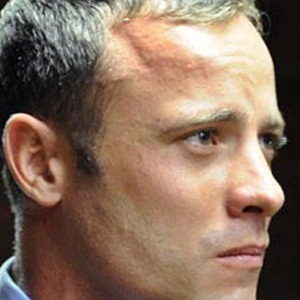
I can’t help feeling that had Oscar’s defence team been in charge on Valentine’s Day, Reeva would still be alive and well, as the team, including Oscar, would have been too busy shooting themselves in the foot.
Individually, they seem like very capable people, but the defence case has been a damp squib from the start. At what was supposed to be the end of their campaign, they managed to snatch defeat out of the jaws of, well, defeat.
The decline of Wolmarans
Earlier, Mr Wolmarans concluded his evidence – and all I felt was sympathy. After all the hype everyone expected miracles and a guaranteed victory for the team. Instead, it ended with more of a whimper than a bang.
Some said he struggled with English and should have spoken in Afrikaans. Certainly this can be a stumbling block – and we’ve been subjected to some deplorable examples of court interpreting. However, I don’t think this was his greatest problem.
Read: 7 ways forensic scientists ID bodies
More of a problem was his shambling and dozy manner, mumbling, and reading from his notes with his head down, talking to his chest, his big mop of wild white hair more than slightly reminiscent of an English sheepdog.
To me the biggest concern must be the very late date of his report. He sat in the court for much of the trial, and was thus able to take into account all other evidence to shape and tailor his evidence accordingly. This, of course, was not lost on Mr Nel . . . Wollie’s anger at this was understandable, but the likelihood is that he had done this quite unintentionally.
Though we were promised wonderful expert evidence on the sounds – including Oscar screaming like a woman – what we got was Mr Dixon, and Wollie, a very nice man but rather deaf. It appears that right through the year, even after the trial had started, various groups conducted repeated tests – but without the desired results.
How forensics failed
From the start, especially on Channel 199, and apart from tireless and desperately naive advertising for Social Media and Twitter, there was a strong emphasis on the wonders of forensics and how vital they would be to the case.
“Forensics can’t lie,” intoned a solemn voice. But exactly as I predicted in an earlier column, this was not going to be of much use. For all the time spent, nothing decisive has been established – and nothing was effective in proving what Oscar was thinking when he fired those fatal shots.
Read: What is the police psychologist looking for in Oscar's testimony?
There are many points that challenge his claims to have shot without thinking, effectively negating the numerous cumbersome expert reports. A close pattern of just four shots, effectively killing the person beyond the door and well-aimed despite gun recoil sounds both professional and intentional.
An ugly thought, but perhaps he stopped shooting when the targeted person stopped screaming – after the head wound . . .
Psychobabble
We’ve also had our share of naive and amateur psychologising, in and out of court. Last week, the Pretoria News smothered the city in placards with the most misleading headline I’ve seen in years. It announced that an “Expert” had pronounced Oscar’s grief to be genuine.
I wondered whether their reporter had accidentally attended the wrong court-room. The probation officer whose “expert” opinion it was doesn’t even remotely qualify as an expert, and the question whether Oscar’s violent weeping was genuine or not is utterly irrelevant to the trial.
Similarly, on TV, a criminologist (not trained to make clinical assessments or diagnoses) was spouting opinions in all directions and managed to confuse “anxiety” and “anxiety disorder” – not the same thing!
The other fiction promoted by media commentators is the fashionable but flimsy idea of “amygdala hijacking” (a strong emotional response that bypasses rational thought processes).
Read: Why was Oscar vomiting?
This is not a scientifically respectable or proven fact, but merely a tempting excuse. Based on no more than the observation that at times of very high emotion of any sort, we tend not to think as clearly and cleverly as when calm.
If any court were foolish enough to accept this, anyone could expect to get away with murder, on the basis that at the time, in their own opinion at least, they were upset, angry, sad, disappointed, jealous or whatever.
It’s really just a new form of the old excuse, “The Devil made me do it”.
The defence’s expert case may be best summarised by Mr Wolmarans’s own words towards the end of his testimony: “I haven’t a clue”.
*The views expressed in this article are those of the author and do not necessarily represent those of Health24.
Read more:
Oscar Trial: The shrink has shrunk
Should Oscar go to a mental hospital?




 Publications
Publications
 Partners
Partners














